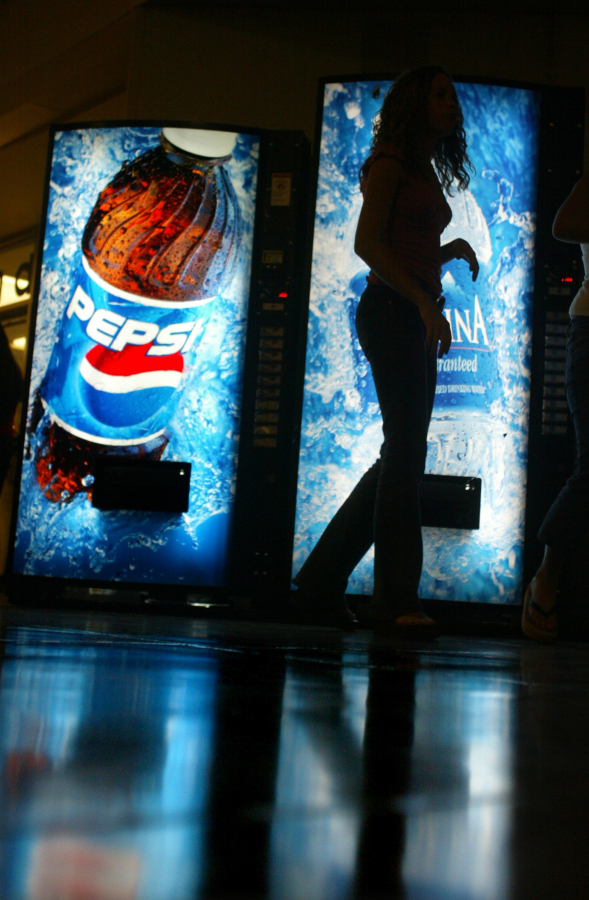The World Health Organization is backing a controversial remedy to reverse the global rise in obesity and Type 2 diabetes — a 20 percent to 50 percent soda tax.
The recommended tax should not be limited to soda, the WHO said Tuesday. It should apply to all sugar-sweetened beverages, a category that includes sports drinks, energy drinks, fruit punch, sweetened iced tea, vitamin waters and lemonade.
“If governments tax products like sugary drinks, they can reduce suffering and save lives,” Dr. Douglas Bettcher, director of the WHO’s Department for the Prevention of Noncommunicable Diseases, said in a statement.
The World Health Organization, the public health agency of the United Nations, said the reasons to act were clear. More than half a billion of the world’s adults are now obese, including 11 percent of men and 15 percent of women. Those rates are more than double what they were in 1980. In the United States, 34 percent of men and 38 percent of women are obese, which is defined as having a body mass index of 30 or above.
Local Angle
Washington state lawmakers have made past attempts to tax sugary food and beverages.
In early 2010, state Rep. Jim Moeller, D-Vancouver, proposed a sales tax on candy and gum in the state Legislature. Later that year, the Legislature approved a bundle of tax proposals that included retail sales tax on candy, gum and carbonated beverages to help fill a hole in the budget.
The rate of the carbonated beverage tax was 2 cents per 12 ounces. It was imposed on carbonated drinks containing caffeine, extracts, fruit juice, herbs, sweeteners or syrup. Carbonated water was excluded.
The taxes on candy, gum and carbonated beverages were repealed by voters in November 2010 with the passage of Initiative 1107, a measure bankrolled by the beverage industry.
People who are obese have an increased risk of heart disease, the leading cause of death in the U.S. They also are more likely to develop certain types of cancer, including breast cancer, colorectal cancer, renal cell cancer, esophageal adenocarcinoma, endometrial cancer, gallbladder cancer and thyroid cancer. The risk of stroke and Type 2 diabetes also rises with BMI.
The WHO cited the steady rise of diabetes as a primary reason for a sugary drink tax. Worldwide, an estimated 442 million people live with the chronic disease, which caused 1.5 million deaths in 2012. More than 76,488 Americans died of diabetes in 2014.
In a report released Tuesday, WHO officials say that consumption of added sugar is the root of these ills. This includes not just table sugar but the honey, syrups and fruit juice concentrates that find their way into processed foods.
“Nutritionally, people don’t need any sugar in their diet,” Dr. Francesco Branca, director of the WHO’s Department of Nutrition for Health and Development, said in the statement.
With this in mind, global health officials have been calling on people to limit the amount of added sugar in their diet to less than 10 percent of total calories. Even better would be to keep it below 5 percent of total calories. For an adult with a healthy weight, that works out to about 6 teaspoons of sugar per day. (To keep that in perspective, a 12-ounce can of Coca-Cola contains the equivalent of nearly 10 teaspoons of sugar.)
A soda tax would help people meet this goal, the WHO argued in a 36-page report. When sugary drinks are more expensive, people will buy less of them. That means they’ll consume less, too.
Economic research suggests that a tax would have to raise the price of sugar-sweetened beverages by 20 percent to 50 percent in order to make most people unwilling to buy them, according to the report. In coming to this conclusion, the authors reviewed studies of food and drink taxes implemented in Denmark, Ecuador, Egypt, Finland, France, Hungary, Mauritius, Mexico, the Philippines, Thailand and the United States.
“The greatest impact was on lower-income, less-educated younger populations and populations at greatest risk of obesity,” the authors wrote.
The most effective taxes are likely to be excise taxes, which are levied on a specific amount of a certain product or ingredient. This would eliminate the incentive for manufacturers to simply switch to less-expensive sweeteners in order to shield consumers from higher prices, according to the report.
The report also recommended the use of subsidies that would reduce the price of fresh fruits and vegetables by 10 percent to 30 percent to encourage people to buy them.



